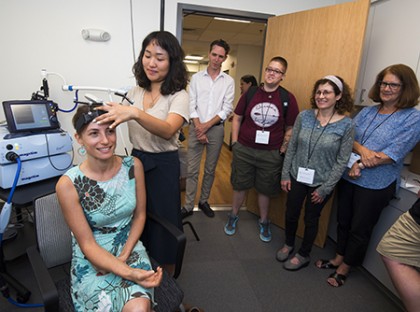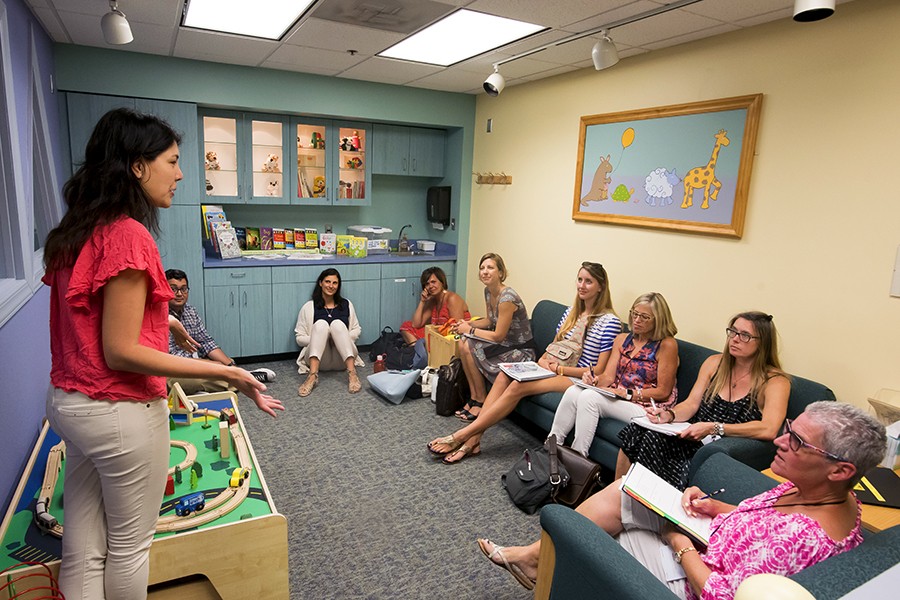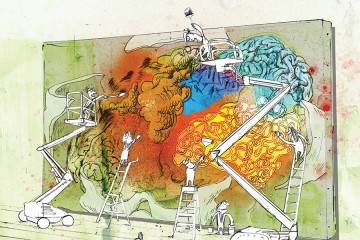Educators from as far away as Africa and as close as Baltimore got a deep dive Wednesday into Johns Hopkins University learning research.
About 150 secondary teachers and administrators spent the day on the university's Homewood campus for the first-ever Science in Action Day, sponsored by the university's Science of Learning Institute. They met scientists doing the cutting-edge research that could one day change how they teach.
"Teachers are very interested in scientific findings with potential classroom applications but never have a chance to see for themselves how researchers come to these conclusions," said Kristin Gagnier, outreach and evaluation specialist at the institute. "What does research about learning look like?"
About 17 Johns Hopkins researchers participated—half who work on fundamental brain research and half who are trying to apply fundamentals to classroom practice. Educators had a chance to meet one of each.
One group headed to Ames Hall to meet Jason Fischer, who studies perception and cognition. In Fischer's lab, the educators got a taste of two of his current experiments—one dealing with people's sense of smell and the other using an eye-tracking device to determine how long people tend to look at faces versus objects.
Clara Epps, who teaches special education at a Washington, D.C., charter school, volunteered to try both experiments.
"I like to learn," said Epps, who is in her fourth year of teaching after spending 18 years in retail. "For me, it's all new and I want to be able to be a better teacher, and a lot of that has to do with data. I want to understand data, so I can perfect my craft."

Image caption: Brain researcher Marina Bedny (seated), with assistance from doctoral student Judy Sein Kim, conducts a demonstration.
Image credit: Larry Canner / Homewood Photography
After spending an hour with Fischer, the group headed to Gilman Hall to hear about Amie Bettencourt's research into the consequences of not being socially and behaviorally ready to start kindergarten. Bettencourt, an assistant professor in JHU's School of Medicine, also looked at ways to bolster these skills in young children through interventions with their parents.
Science in Action Day is part of a five-day Science of Teaching and School Leadership Academy, sponsored by the Center for Transformative Teaching & Learning in Potomac, Maryland. There was a waitlist of nearly 100 to get into the program, designed to educate teachers and school leaders about mind, brain, and education science research and its application to educational practice. In one exercise, educators get the opportunity to dissect a sheep's brain, then create a new lesson plans based on what they've learned.
Jodi Simpson, who teaches second grade in a small town in Western Colorado, was eager to sign up, hoping to find, after 16 years of teaching, if the things she intuitively thought had scientific merit.
"I wanted to know if what I thought was right has made a difference that I can measure," she said.
Posted in Science+Technology, Politics+Society
Tagged brain science, education, science of learning institute










